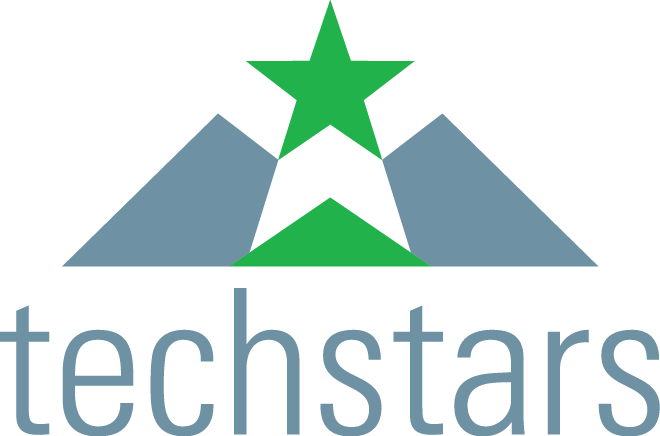If you’re in the startup community, you might have heard about accelerators or incubators. And, if you are looking for funding or support to launch your company and wondering: What is an accelerator? What happens in an accelerator? How do I get into an accelerator? This article is for you.
Below, we will cover the key differences between types of accelerators, how to get into an accelerator, how to select the right accelerator for you, and other things to consider when thinking about startup accelerators.
What is a Startup Accelerator?
What is an accelerator? An accelerator is usually a program to which you can apply to become a participant of a cohort of peers. The accelerator provides a program, often seed funding, mentorship, peer support, and often long-term investment.
All that sounds great! Wait, there must be some catch – right? Actually yes, there is. Accelerators invest their time, energy, and small seed capital, and the startup usually agrees to give away a portion of their equity.
Note: With Incubator programs equity is not usually a part of the deal. Although this is not always the case, it is generally the difference between the two. Accelerators face outward and Incubators attract talent and ideas from within.

How your Startup can Benefit
In the face of unknowns and complexity, bringing your startup successfully to life can be a really challenging thing to do. Accelerators can be a great resource to help the first-time entrepreneur or early stage company to make it.
With accelerators and incubators you’ll get mentorship and advice to support and grow your company. These programs can help you get to the next stages of your growth without spinning your wheels and learning the hard way. Founders may also get support in the form of seed funding, support with their pitch or pitch deck, an opportunity to pitch live in front of an audience, and a vast network of potential investors. More significantly, you’ll have a better business from being a part of an accelerator.
Applying to an accelerator or going through an accelerator program can help you see weaknesses in your businesses plans and short circuit some of the learning curve. This speeds things up or “accelerates” your startup. Hence the name. With the additional help and expertise, your startup is positioned to get a lot further, a lot faster than it could on it’s own.
At least in theory.
Types of Accelerator Programs
Some really big accelerator programs are Y Combinator and Techstars. Y Combinator was of one of the first accelerators. And they started the trend towards a large nationwide and international boom of accelerator programs. Accelerator programs come in all shapes and sizes. From big and well-known programs with many types of industries, like the ones we mentioned above, to very small, localized accelerators with niche focuses.
Check out our full list of accelerators by state here.

How Do I Choose an Accelerator?
Things are complicated in the investment world. Choosing an accelerator is no exception. Most importantly, finding the right accelerator can be daunting due to the complexity of agreements, application processes, and potential outcomes. There are many different kinds of accelerators, offerings, terms, and network access. Second, it’s really hard to say what you’re going to get out of being part of an accelerator.
There are probably some programs out there that you won’t get much out of. Fortunately, founders are a vocal bunch. There should be plenty of information out there on accelerators that have helped startups like yours. Knowing the good and bad programs is essential.
Accelerator Selection Factors
Selection factors include understanding where the accelerator is located, what the investment is, how much equity it will cost you, past record of successful launches, and what they are providing throughout the acceleration period. Also, you are part of a cohort where you will likely become part of a larger community. How active and supportive are those communities?
Most of these programs are in-person and there is a good reason for this. Acceleration happens better in a place of focus. Collaboration with such a large network of interactions is hard to accomplish working virtually. Distractions interrupt the acceleration process which counters working virtually. But there are some virtual programs as well.
Another key consideration when looking at different accelerator programs or investors in general – Are you looking for funding, or are you looking for more specialized support? Laser focused on one industry or type of team, some accelerators are specialists in a particular type of company. And other accelerator programs are more broad.
For example: Y Combinator and Techstars both have a relatively broad focus, with large cohorts, multiple times a year.

How Do Accelerators Select Startups?
In general, accelerators usually only accept 1% to 3% of the people that apply, so it can be a challenging application process. These programs are often very well-known and it’s prestigious to have been through program with narrow selection criteria, unique expertise and network backing.
Like we said before, programs like Techstars and Y Combinator are well known. They have a broad focus which allows for many types of applicants to compete. Accelerators with a niche focus are sometimes easier to get into. Those working with just tech startups, women owned business, AI or IoT specific tech, or only medical device companies – could help to make your company stand out in a smaller field.
Looking at different accelerator programs in your industry can be helpful for you to figure out which one might be a good fit. Maybe those more specialized ones have more specialized support, and have more support than can be valuable for you in your particular space.
For instance, if you’re a medical device startup, there might be some pitfalls and things that a medical device-specific accelerator can help overcome that a general accelerator would not be as helpful with.

How to Get Into an Accelerator
Acceptance into an accelerator is not easy. Competition is fierce. Competing takes time and energy. But there is upside. Your company will likely overcome the early learning curve and “proof” problem most startups encounter.
Most accelerators have an application deadline, followed by an invitation to pitch. Applicants often need to submit short videos of their pitch during the application phase. They may require you to upload your pitch deck.
The rules and requirements vary by program. However, having a good handle on your business fundamentals is critical to the overall success of the application process, because the questions will likely be in-depth.
What Should I Expect if I Get Accepted?
In a successful bid to join an accelerator, you’ll probably be moving. You’re also embarking on a very intensive, week-by- week acceleration period of three months or longer.
During this time you will get better in touch with your users. You’ll be able to fine tune your business to make progress toward your MVP. Mentors will be available distributing leading practices that get results. They’ll also be helping you focus and do the right things at the right time. And you’ll ultimately fine tune your pitch to be able to move your company forward with other investors.
Accelerators have interest in helping you get to the next stage of funding. And usually they’re giving you a lot of expertise and help from mentors and volunteers because at the heart of it, the success of their business model depends on your success.

Corporate Accelerators and Incubators
Another type of accelerator or incubator program is a corporate incubator program. Large corporation like an AT&T, Google, etc. have internal incubator programs.
An incubator program at a corporation is usually one where they’re bringing in outside companies to get expertise and support from their large corporation.
Want to sell to a large corporate organization? These internal programs are worth considering, but protect your idea. Especially if you think that your product is an especially good fit for a relationship with the corporation.
Disney for example has an incubator program that can be really good for companies who want to work with Disney, or have relationships with Disney or similar type companies.
Other Types of Incubators
Other types of incubator programs within corporations are internal incubator programs. They may not be available for outside companies to apply. For example, Google’s Area 120 is an internal incubator program. No other outside companies can apply to this incubator program. It’s only for internal companies and projects.
Googlers who want to work on an idea and build new products can pitch to Google’s Area 120. Google supports and funds these internal “entrepreneurs”. They get time to build their ideas. This allows them to do more then just their “employee” task. Many other big corporations have these kinds of programs or have been starting these kinds of programs.
If you work in a corporation you can look into whether or not you have an internal incubator program. And if you’re looking for alternative accelerator programs you can look at corporations to see if there’s some good programs that you can join there as well. They sometimes have unique value ads that they provide outside of what these generalists accelerator programs or individual accelerator programs have.
Final Summary
Look at the different kinds of accelerators and incubators you could apply to. Evaluate whether giving up equity for support, advice, potential funding, and potential prestige from these various accelerator programs is worth it. Would moving be an option for you?
Joining an accelerator takes time out of your execution to compete in a difficult to win competition. But winning could short-cut failure and lead to greater success. It’s an individual decision if this type of investment and effort are right for you startup and team. So really consider what the outcomes and relationships mean to you and what the true value of trying to get in would be.
Ultimately decide on whether it’s worth giving a chunk of your business away for the advice, network, focus, and additional investment you might receive. Accelerators can be a really good option for companies, and can give a lot of support in ways that would be hard to get otherwise.
How can we help?
Need help with your pitch? Pitch Deck Fire specializes in pitch deck design and presentation preparation. Sign up to speak to a project lead about your pitch deck, sign up here: I want to talk about my pitch deck project.
Seeking funding or preparing for a pitch? Find more resources, check out our other helpful articles and posts here: Startup Resources








